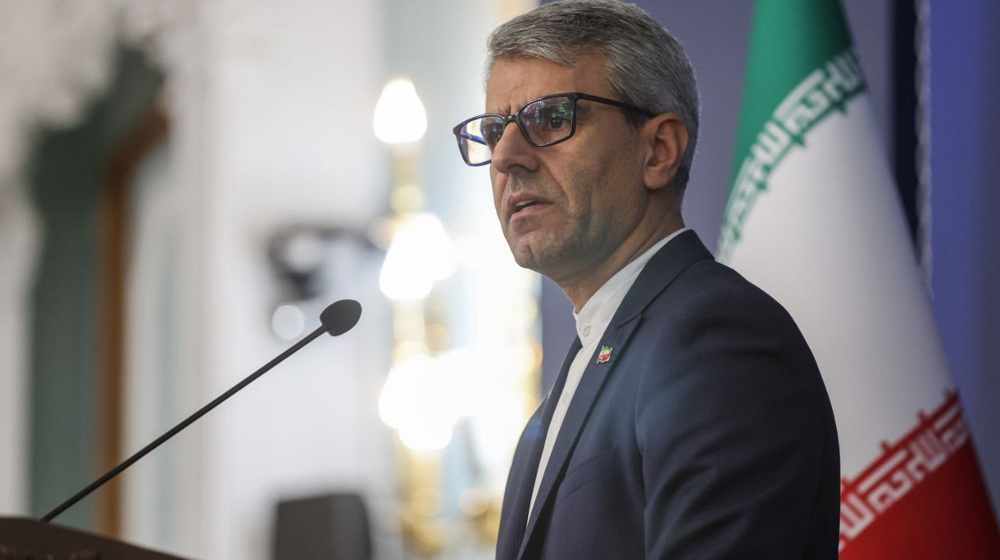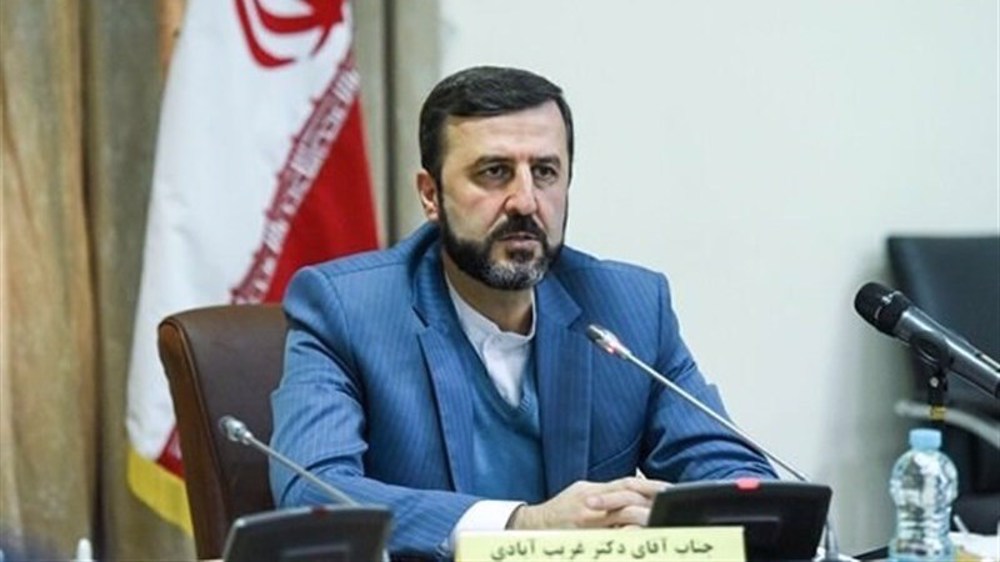Iran strongly rejects demands for inspectors access to military sites
A senior Iranian official has vehemently rejected US demands for UN inspectors to visit Iran’s military sites under the pretext of implementing Tehran’s nuclear deal with the world powers.
Ali Akbar Velayati, a senior advisor to Leader of the Islamic Revolution Ayatollah Seyyed Ali Khamenei, made the remarks on the sidelines of a Tuesday ceremony in Tehran in response to the Friday statements by US Ambassador to the UN Nikki Haley who urged the International Atomic Energy Agency (IAEA) to request access to Iranian military sites, in what is regarded as an attempt by the US to undermine the July 2015 Joint Comprehensive Plan of Action (JCPOA).
Haley also accused Iran of previous covert nuclear work. This is while when the JCPOA was implemented, the IAEA permanently closed a file looking into such allegations against Iran, meaning that any such suspicions had been dispelled.
“The Americans should take the dream of being able to inspect our military sites, be it under the pretext of the JCPOA or based on any other justification, to the grave,” Valayati told reporters.
“The Islamic Republic of Iran, which is the pivot of resistance in the region, will not allow the Americans and non-Americans to inspect [its] military sites, which are a crucial and strategic part of national security,” he added.
The Iranian administration spokesman, Mohammad Baqer Nobakht, also denounced Haley’s remarks, saying, “The information with regard to Iran’s military sites are classified and access to such locations, specially by the US, is definitely wishful thinking by them.”
Nobakht underlined Iran’s determination to defend any issue which is related to the country’s national interests.
Iran has repeatedly contended that the US demands for access to Iran’s military sites are aimed at politicizing the JCPOA and that issues pertaining to Tehran’s defense capabilities are non-negotiable.
The UK daily, the Guardian, reported Monday that the administration of US President Donald Trump is pressuring intelligence officials in the United States to produce intelligence that could be used to declare Iran in violation of a nuclear deal the president despises.
Read more:
The report cited former CIA analyst Ned Price as saying that intelligence officials had told him they felt the scenario that led to the 2003 US invasion of Iraq was repeating itself and that they were resisting the pressure to manufacture intelligence.
The US is a party to a multilateral deal with Iran that was concluded under the administration of former president Barack Obama in 2015. But Trump, who took over in January 2017 and who campaigned mainly on a platform of undoing every one of Obama’s major policy achievements, has taken aim at the Iran deal.

Earlier, Trump sent a senior member of his administration to Vienna to lobby with the IAEA to request access to Iranian military sites as part of the deal.
The IAEA, tasked with monitoring Iranian compliance with the deal, has consistently verified that Iran has been holding up its end of the bargain.
Trump has also set up a team of his White House confidantes to present him with “options” other than certifying Iranian compliance with the deal to the Congress. Such certification is needed by US law every 90 days in order for the Congress to continue to withhold nuclear-related sanctions against Iran, itself a US commitment under the JCPOA.
The Trump administration has twice so far certified Iran’s compliance with the deal. US media reports said Trump agreed to those certifications only “reluctantly.” All indications are that he wants to avoid a third certification.
According to Richard Nephew, a former Obama administration official and a member of the US negotiating team in the talks with Iran, the White House seeks manufactured intelligence to pull out of the deal.
Nephew and other former officials said members of the US intelligence community had learned the lessons of the Iraq scenario the hard way and would be unwilling to fabricate intelligence.

In the lead-up to the US invasion of Iraq in 2003, the then-White House officials said they were in possession of conclusive evidence that the then Iraqi regime of Saddam Hussein was in possession of weapons of mass destruction (WMDs).
An eight-year war and hundreds of thousands of lost lives later, the US withdrew without ever finding any WMDs. In a debate that continues to this day, White House officials responsible for the invasion have blamed false intelligence, and spies have said they had been under pressure by the White House to provide intelligence.
Unlike the US, the European parties to the nuclear deal as well as Russia and China have never raised any complaints about the agreement with Iran and have stressed full commitment to it.
The UK, France, Germany, Russia, and China, along with the former US administration, invested considerable time and political capital in the negotiations that culminated in the Iran deal.
Iran’s Armed Forces will cut off any 'hand of aggression' against Leader: Spokesman
VIDEO | Foreign hands, failed chaos
Russia’s Lavrov condemns Western plots for ‘regime change’ in Iran
‘No natural uprising’: Prominent global voices on US-Israeli role in engineering Iran riots
Trump threatens 200% wine tariffs on France to push Macron to join Gaza board
Yemen’s Saudi-backed PLC slams UAE for running secret prisons; Abu Dhabi denies
Swiss MPs move to strip UEFA of tax-exempt status over failure to ban Israeli teams
VIDEO | Massive Michigan pileup sees over 100 vehicles collide in highway crash













 This makes it easy to access the Press TV website
This makes it easy to access the Press TV website